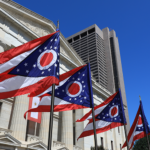Washington state organized labor leaders testified on Monday in opposition to a Republican-sponsored bill promising to bring fairness and accuracy to the prevailing wage process.
The measure, according to its prime sponsor, is simply a “process bill.” Sen. Jan. Angel (R-Port Orchard) explained that SB-6317 would revise the way the state calculates prevailing wage rates.
“The bill would require the use of stratified random sampling methodology to collect good and complete data,” she said. “We do have prevailing wage, and this bill does not dispute that. But we need accurate information, and I firmly believe this bill will make that possible.”
Prevailing wage laws date back to the 1930s and generally require that public works projects pay contractors the highest wage normally paid for similar work performed in the region where the work is to be done.
In theory, the legislation prevents out-of-state contractors from under-bidding for jobs and keeps the money spent for the project in the hands of those who taxes paid for it. In practice, the law virtually assures the work will always be performed by union labor — which is why union leaders are suspicious of anything that could conceivably upset the calculus.
Currently, prevailing wage rates are calculated by conducting a survey of contractors and unions throughout the state to determine the rate of pay in different job classifications. But the process is voluntary, so many contractors simply don’t bother with the time or expense of reporting.
Unions, however, have every incentive to report their wages in order to keep the prevailing wage as high as possible, and critics of the current system say voluntary reporting has the effect of skewing the numbers in the unions’ favor.
Under SB-6317, 30 percent of the local unions and contractors would be chosen at random and compelled to fill out a prevailing wage survey — with fines levied on those who refuse.
“This is not a debate about whether we should or should not have prevailing wage; that was decided in the ’30s,” said Rep. Matt Manweller (R-Ellensburg), who authored the companion bill for the House of Representatives. “What we should all agree, whether you support it or oppose it, is that you should do it accurately, according to accepted academic and scientific standards.”
Manweller said the current prevailing wage data is compromised by what’s called “self-selection bias.” No one would trust a poll taken on the Fox or MSNBC network websites regarding the respondents’ preference as the next president, he explained, because people tend to visit those sites because of their own personal biases.
Likewise, the state should not trust data submitted voluntarily only by parties with a vested interest in a given outcome.
“The difference is, you don’t call the pollster; the pollster calls you,” Manweller said. “We’re just trying to set up something that mimics what’s done in the real world to obtain accurate data.”
Manweller said he expected the change would be revenue-neutral for the state because any additional cost to compile the data would be generated out of fines levied on companies who opted not to comply.
“The credibility of the data is dependent on the credibility of the method used to compile it,” agreed Van Collins, representing the Associated General Contractors of Washington state.
“There are a lot of assertions about the current system not being accurate,” countered Kathleen Collins with the Washington State Sheetmetal and Air Conditioning Workers, “and maybe there needs to be more work done to make sure contractors turn in their surveys, but I question whether the mechanisms in this bill are the proper ones to do that.
“Under the bill, they’re going to survey 30 percent of the contractors in a given region,” she continued. “If there are 100 contractors, that means 30 responses. And when they receive 25 percent of the responses, they’ll set the wage. I’m not a survey expert, but 25 percent of 30 percent doesn’t seem like a real significant sample size.”
Neil Hartman, a research analyst with the Washington State Building and Construction Trades Council, said the stratified random sample methodology had been considered and rejected by the Legislature before because it potentially “excluded important stakeholders” who would be affected by the outcome of the survey.
“This method may be appropriate for a population census or Nielsen TV rating,” he said, “but it will not produce fair and accurate results for the construction industry.”
“No one, at least on the business side of the equation, believes the current survey methodology is at all accurate,” answered Cliff Webster, with Associated Builders and Contractors. “In fact, it discourages participation by business owners and contractors because it’s cumbersome and expensive to participate, and they just don’t feel the information ever makes it through the process.
“What’s suggested in this bill makes sense,” he said. “It’s used routinely to determine all sorts of things in our consumer society, and I’m quite certain it would work well here.”











